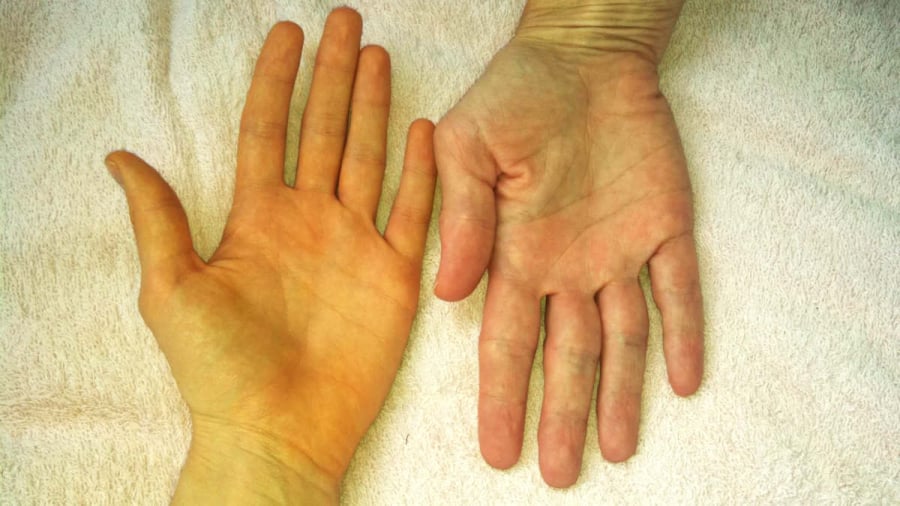Loss of Appetite and Nausea
Frequent loss of appetite and nausea are common signs of an unhealthy liver, often mistaken for other conditions with similar symptoms. This is because a poor appetite, loss of taste, or nausea can result from inefficient bile production when the liver is damaged.
Therefore, it is advisable to get a comprehensive health check-up, especially for your liver, to protect your health and determine the best treatment.
You Notice Abnormal Urine Color
If you observe a sudden change in urine color, it could indicate potential liver issues. Monitoring urine color is an active way to keep track of your health and detect internal abnormalities. Elevated bilirubin levels in the body, which the liver hasn’t effectively released, can cause darker urine colors.

Early Signs of Liver Disease—Pay Attention and Get Checked
In some cases, dark urine may indicate dehydration, and the color can return to normal with proper rehydration. However, for individuals with liver problems, the urine color will remain dark and show no signs of improvement within 3-5 days. Early medical consultation is crucial in such situations.
You Experience Pain in the Liver Area
Frequent pain in the liver region, specifically in the lower right abdominal area, is often a sign of liver problems. Patients with mild liver disease or in the early stages may experience this symptom less frequently than those with chronic hepatitis, cirrhosis, or liver cancer.
If you have unusual pain in the liver area that doesn’t improve, accompanied by fatigue, nausea, loss of appetite, jaundice, or other symptoms, it could indicate liver damage, and timely treatment is essential.

Jaundice Indicates Advanced Liver Disease
You Develop Jaundice (Yellowing of Skin and Eyes)
The sudden appearance of jaundice, or yellowing of the skin and eyes, results from elevated bilirubin levels. In a healthy body, bilirubin is a substance metabolized by the liver and excreted through kidney filtration and partially through feces. However, when liver function declines due to hepatitis, bile duct obstruction, or pancreatic cancer, bilirubin accumulates primarily in the skin and eyes, leading to jaundice.
You Feel Abdominal Distension
Abdominal distension, a feeling of fullness and tension in the abdomen, is common in individuals with cirrhosis. When liver function is impaired, the body loses its ability to balance protein levels naturally, leading to long-term accumulation. This condition causes a buildup of fluid in the abdominal cavity, resulting in a distended and uncomfortable abdomen. If left untreated, the fluid can spread to other organs, causing abnormal swelling in the hands, feet, or face.
The Magic Sprinkle: Keep Your Ginger Fresh for a Year and Beyond
Introducing the ultimate guide to storing ginger root. Are you tired of your ginger going bad before you get a chance to use it? Well, worry no more! We’ve got the top tips and tricks to keep your ginger fresh and flavorful for longer. From freezing to storing in syrup, we’ll reveal the best methods to ensure your ginger stays in tip-top condition.





































